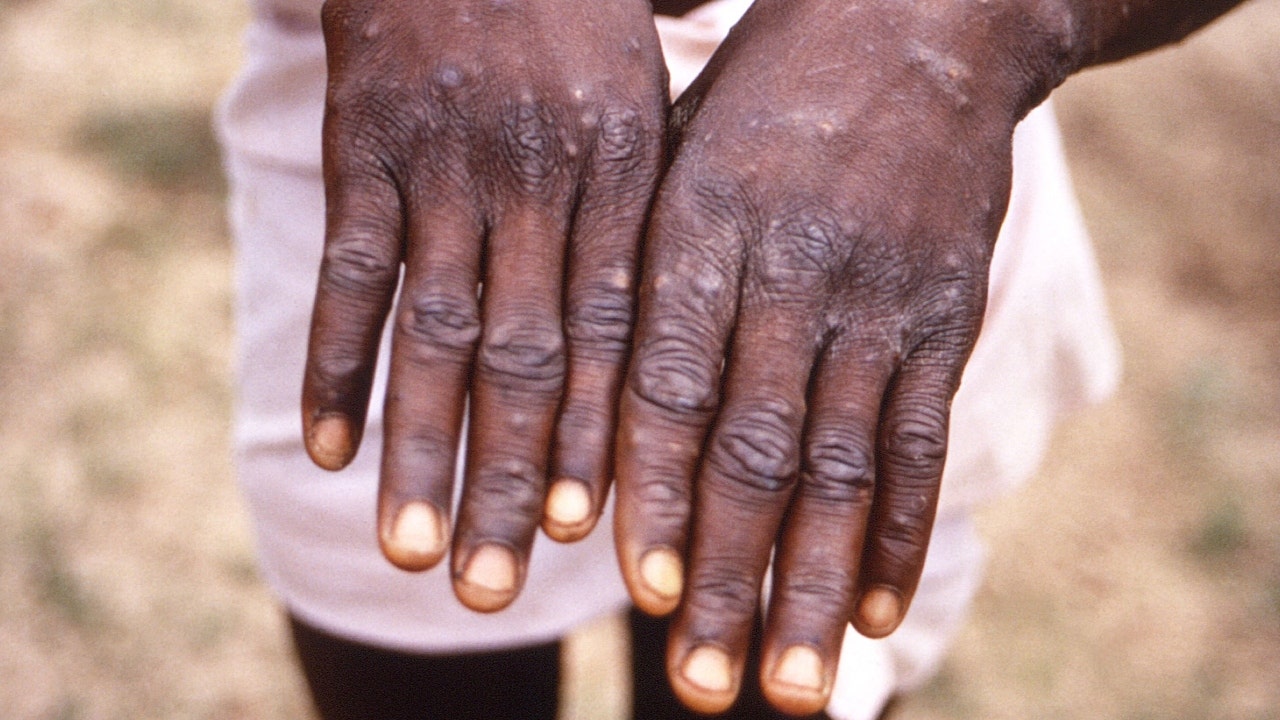Health
Cheese for Weight Loss? Yes! Here's Why Docs Say It's a “Secret Weapon” for Women Over 50

Sign Up
Create a free account to access exclusive content, play games, solve puzzles, test your pop-culture knowledge and receive special offers.
Already have an account? Login
Forgot your password?
Get back to the Sign In
Use left and right arrow keys to navigate between menu items.
Use escape to exit the menu.

Health
Are noise-canceling headphones hazardous to your health? Audiology experts share warnings

Noise-canceling earbuds and headphones can be helpful when you need silence on demand — but could they be hazardous to your health?
The technology has grown in popularity among people who need to eliminate auditory distractions — background chatter, loud children or traffic noise. Yet some experts claim that blocking out the sounds of your surroundings can put you at risk.
“Technology often provides convenience at the cost of awareness,” Josh Gordon, head of innovation at the Singapore technology company Geonode, told Fox News Digital.
FITNESS CLASS TOO LOUD? WHAT TO KNOW ABOUT PROTECTING YOUR HEARING HEALTH
“Noise-canceling earbuds may bring welcome silence, but they might also mask vital sounds that could save your life.”
Generally, good noise-canceling headphones can reduce noise by 20 to 40 decibels (dB), according to Gordon.
Noise-canceling earbuds and headphones can be helpful when you need silence — but some experts say they can be hazardous to your health. (iStock)
“There are positives and negatives to every technology,” Dr. Ruth Reisman, a clinical audiologist and hearing aid dispenser in New York State, told Fox News Digital.
“There can be some negative side effects to wearing noise-canceling headphones, including the reduction of awareness of [people’s] surroundings.”
ASK A DOC: ‘WHY ARE MY EARS RINGING, AND SHOULD I SEE A DOCTOR?’
One of Reisman’s colleagues recently did a study on this topic, she said.
“It was found that in addition to the volume of the media, the exposure and time of usage can also impact the patients’ hearing,” she noted.
This can potentially result in hearing damage and an “auditory processing challenge,” according to Reisman.

Generally, good noise-canceling headphones can reduce noise by 20 to 40 decibels, an expert noted. (iStock)
Joel Smith, a California-based audio expert and founder of the music hub AllAxess.com, agreed that noise-canceling headphones can impact hearing if they’re not used properly.
“Blasting the volume for too long can cause noise-induced hearing loss, ringing in the ears called tinnitus or even make it harder to process and distinguish sounds clearly over time,” he told Fox News Digital.
HEARING LOSS MORE LIKELY TO AFFECT RURAL AMERICANS AND MEN, NEW STUDY SHOWS
Constant exposure to loud noise can damage the inner ear hair cells that send sound signals to the brain, according to Smith.
“As those hair cells deteriorate from the loud noise, it makes it harder for your brain to properly interpret speech, background noise and other subtle sounds,” he said.
“It’s like your auditory processing gets muffled or desensitized.”

Noise-canceling earbuds or headphones can be used safely, “as long as they are set at an appropriate volume and not used for extended periods of time,” an expert said. (iStock)
Another risk, according to Smith, is that earbuds that aren’t cleaned regularly can trap moisture and bacteria, increasing the risk of ear infections.
“Some studies also suggest that excessive headphone use might affect your balance and spatial awareness, since you’re not relying on natural sound cues as much,” Smith added.
Safe usage tips
Noise-canceling headphones have their benefits, experts agree.
They can be helpful for people who have hyperacusis (sensitivity to noise) or those who have autism, Reisman advised.
“This can often make a noisy or disorienting environment tolerable or accessible to individuals with these challenges,” the doctor said.
EAR INFECTIONS IN YOUNG CHILDREN COULD LEAD TO DELAYED SPEECH FOR THEM, STUDY FINDS
Noise-canceling earbuds or headphones can be used safely, Reisman said — “as long as they are set at an appropriate volume and not used for extended periods of time.”
Research shows that anything below 80 decibels is considered a safe volume, the doctor noted, with usage ideally limited to no more than two to three hours per day.

Constant exposure to loud noise can damage the inner ear hair cells that send sound signals to the brain, according to an expert. (iStock)
“The question is how to actually measure the amount of decibels at the level of the eardrum,” she said.
“You can potentially go to an audiologist and have [the expert] do a real ear measure, or use a sound level meter at the level of the ear to assess the intensity.”
Some phones also offer some guidance on safe volume levels, Reisman added.
CLICK HERE TO SIGN UP FOR OUR HEALTH NEWSLETTER
“I don’t think people need to avoid [noise-canceling headphones] completely, but you’ve got to use them responsibly,” Smith said.
He recommends following the 60/60 rule, which means keeping the volume at 60% or less and taking a break every 60 minutes to give your ears a rest.

“I don’t think people need to avoid [noise-canceling headphones] completely, but you’ve got to use them responsibly,” an expert said. (iStock)
“Be extra cautious in loud environments, since you might crank it up way too high to overcome that background noise,” he advised.
Smith recommended taking regular breaks and keeping volumes moderate to prevent auditory fatigue and preserve healthy hearing into older age.
“Technology is a powerful tool,” Gordon added.
“But like any tool, understanding its limitations and using it responsibly is key to staying safe.”
For more Health articles, visit www.foxnews.com/health.
Health
Mpox outbreak that is rapidly spreading through Congo may be a new form of the disease

Congo is struggling to contain its biggest mpox outbreak, and scientists say a new form of the disease detected in a mining town might more easily spread among people.
Since January, Congo has reported more than 4,500 suspected mpox cases and nearly 300 deaths, numbers that have roughly tripled from the same period last year, according to the World Health Organization. Congo recently declared the outbreak across the country a health emergency.
An analysis of patients hospitalized between October and January in Kamituga, eastern Congo, suggests recent genetic mutations in mpox are the result of its continued transmission in humans; it’s happening in a town where people have little contact with the wild animals thought to naturally carry the disease.
CDC ISSUES ALERT FOR NEW MPOX (MONKEYPOX) CASES IN CHICAGO
“We’re in a new phase of mpox,” said Dr. Placide Mbala-Kingebeni, the lead researcher of the study, who said it will soon be submitted to a journal for publication. Mbala-Kingebeni heads a lab at Congo’s National Institute of Biomedical Research, which studies the genetics of diseases.
The lesions reported by most patients are milder and on the genitals, Mbala-Kingebeni said, making the disease trickier to diagnose. In previous outbreaks in Africa, lesions were mostly seen on the chest, hands and feet. He also said that the new form seems to have a lower death rate.
A patient shows the rash marks on his hands due to the 1996 to 1997 monkeypox outbreak in the Democratic Republic of the Congo. (CDC/Brian W.J. Mahy/Handout via REUTERS)
In a report on the global mpox situation this week, WHO said the new version of the disease might require a new testing strategy to pick up the mutations.
With experts pointing out that fewer than half of people in Congo with mpox are tested, Mbala-Kingebeni said: “The risk is that unless patients themselves come forward, we will have a silent transmission of the disease and nobody will know.”
Mbala-Kingebeni said most people were infected via sex, with about a third of mpox cases found in sex workers. It was not until the 2022 global emergency of mpox that scientists established the disease was spread via sex, with most cases in gay or bisexual men. In November, WHO confirmed sexual transmission of mpox in Congo for the first time.
There are two kinds, or clades, of mpox, which is related to smallpox and endemic to central and west Africa. Clade 1 is more severe and can kill up to 10% of people infected. Clade 2 triggered the 2022 outbreak; more than 99% of people infected survived.
WHAT IS ALASKAPOX? FIRST FATALITY REPORTED FROM ANIMAL-BORNE VIRUS, LIKELY CONTRACTED FROM STRAY CAT
Mbala-Kingebeni and colleagues said they have identified a new form of clade 1 that may be responsible for more than 240 cases and at least three deaths in Kamituga, a region with a significant transient population traveling elsewhere in Africa and beyond.
Dr. Boghuma Titanji, an infectious diseases expert at Emory University who is not connected to the research, said the new mutations are concerning.
“This suggests the virus is adapting to spread efficiently in humans and could cause some pretty consequential outbreaks,” she said.
Although the mpox epidemics in the West were contained with the help of vaccines and treatments, barely any have been available in Congo. Congo’s minister of health has authorized the use of vaccines in high-risk provinces, said Cris Kacita Osako, coordinator of Congo’s Monkeypox Response Committee. He said officials are in talks with donor countries like Japan to help buy the shots.
“Once a sufficient quantity of vaccines is available … vaccination will be implemented as part of the response,” Kacita Osako said.
Dr. Dimie Ogoina, an mpox expert at Niger Delta University, said the new research is an unsettling reminder of an earlier — but different — outbreak.
CLICK HERE TO SIGN UP FOR OUR HEALTH NEWSLETTER
“The notable spread among sex workers is reminiscent of the early stages of HIV,” he said, explaining that prejudices attached to treating sexually transmitted infections and the reluctance of people with mpox to come forward were worrying.
WHO’s emergencies chief, Dr. Michael Ryan, said last week that despite the ongoing spread of mpox in Africa and elsewhere, “there has not been a single donor dollar invested.”
Health
Cat owners could be at higher risk of schizophrenia, study suggests, but more research needed

Cuddling with a cat or kitten might seem therapeutic, but a new study suggests contact with these animals could have adverse mental health effects down the road.
Research published in Schizophrenia Bulletin found that people who are exposed to cats may have more than double the chances of developing schizophrenia and other similar mental disorders later in life.
Australian researchers from the University of Queensland conducted a systematic review of 17 studies performed in 11 countries between Jan. 1, 1980, and May 30, 2023.
STUDY LINKS CANNABIS ABUSE TO SCHIZOPHRENIA IN YOUNG MEN
The study data was pulled from several databases, including Medline, Embase, CINAHL, Web of Science and other publications.
All the studies focused on participants who owned cats in their first 25 years of life and experienced schizophrenia-related outcomes, according to the researchers.
A new study suggests that being exposed to cats early in life could have adverse mental health effects down the road. (iStock)
Schizophrenia is a mental illness that affects a person’s thoughts, behaviors and feelings, as defined by the National Institute of Mental Health.
Psychotic symptoms can include hallucinations, delusions and thought disorders.
AI-DISCOVERED DRUG SHOWS ‘ENORMOUS POTENTIAL’ TO TREAT SCHIZOPHRENIA: ‘REAL NEED FOR BETTER TREATMENT’
Those with the disorder may also experience cognitive challenges, loss of motivation, withdrawal from social activities, difficulty showing emotions and an overall lack of functioning.
“Based on past studies, there is evidence linking cat ownership and an increased risk of subsequent schizophrenia,” study author Dr. John McGrath, a psychiatrist at Queensland Brain Institute at the University of Queensland, St Lucia, Australia, told Fox News Digital.
“We had an open mind, and we reported the published findings.”

Research published in Schizophrenia Bulletin found that people who own cats may have more than double the chance of developing schizophrenia and other similar mental disorders later in life. (iStock)
Previous research linking cat exposure to schizophrenia risk has focused on Toxoplasma gondii (T. gondii), a parasite that can cause a feline disease called toxoplasmosis.
Separate studies have identified a “modest to large association” between toxoplasmosis and schizophrenia.
CATS AT COLLEGE? ‘HIGHLY EMOTIONAL’ STUDENTS MAY BENEFIT FROM FELINES ON CAMPUS: STUDY
The study did have some limitations, McGrath acknowledged.
“While observational epidemiology cannot prove this link, this topic warrants further, more detailed research,” he said.
“I was disappointed that there were not more highly quality — i.e., more rigorous — studies in our review.”
“Schizophrenia is an incredibly complex disorder, and this study identifies one potential risk factor that needs to be understood in a broader context.”
Schizophrenia is a “poorly understood group of disorders,” McGrath noted.
“We need to invest in more research that looks at potential risk factors. There is much work to be done.”
‘No need to panic’
Dr. Zachary Ginder, a psychological consultant and doctor of clinical psychology at Pine Siskin Consulting, LLC in Riverside, California, was not involved in the study but commented on the findings.

Schizophrenia is a mental illness that affects a person’s thoughts, behaviors and feelings. Psychotic symptoms can include hallucinations, delusions and thought disorders. (iStock)
“It is important to keep a level head in consideration of these findings, and there is no need to panic if you own a cat and have children or are thinking about starting a family,” Ginder told Fox News Digital.
“Schizophrenia is an incredibly complex disorder, and this study identifies one potential risk factor that needs to be understood in a broader context. It would likely be premature to make strong recommendations about cat ownership solely based on these findings.”
CLICK HERE TO SIGN UP FOR OUR HEALTH NEWSLETTER
Although a relationship has been established between early-life cat exposure and schizophrenia, Ginder emphasized that this does not necessarily indicate that exposure causes the disorder.

“A lot more research” is needed to better understand these relationships — “accounting for a myriad of potential confounding factors and exploring underlying biological mechanisms,” said one psychological consultant and doctor of clinical psychology. (iStock)
“There is a lot that we still don’t know, and it is important to highlight that not all people who are exposed to cats or infected with the parasite develop mental health issues, and not all people with schizophrenia have had cat exposure,” he told Fox News Digital.
“While this parasite may play a role, it’s likely part of a complex interplay of genetic and environmental factors.”
Ginder echoed the researchers’ comments that “a lot more research” is needed to better understand these relationships — “accounting for a myriad of potential confounding factors and exploring underlying biological mechanisms.”
“These findings just give us another piece of an incredibly complex puzzle.”
For more Health articles, visit www.foxnews.com/health.
-

 News1 week ago
News1 week agoLarry Webb’s deathbed confession solves 2000 cold case murder of Susan and Natasha Carter, 10, whose remains were found hours after he died
-

 World1 week ago
World1 week agoHaiti Prime Minister Ariel Henry resigns, transitional council takes power
-

 News1 week ago
News1 week agoFirst cargo ship passes through new channel since Baltimore bridge collapse
-

 World1 week ago
World1 week agoUS secretly sent long-range ATACMS weapons to Ukraine
-

 World1 week ago
World1 week agoSpanish PM Pedro Sanchez suspends public duties to 'reflect'
-

 News1 week ago
News1 week agoAmerican Airlines passenger alleges discrimination over use of first-class restroom
-

 Movie Reviews1 week ago
Movie Reviews1 week agoHumane (2024) – Movie Review
-

 Education1 week ago
Education1 week agoVideo: Johnson Condemns Pro-Palestinian Protests at Columbia University
















